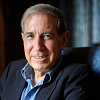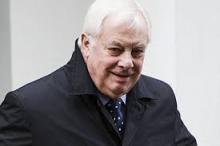The Battle Over Syria’s Future
As we approach the sixth year of Syria’s civil war, the whole international community remains completely inept and has failed to join together in the search for a solution that could end the horrifying slaughter of thousands of innocent civilians each month. Sadly (but for obvious reasons), each of the countries and other groups involved, including Russia, Iran, Turkey, Saudi Arabia, the US, the Assad government, and the rebels, are focused solely on what best serves their own national interests.
I am not naïve enough to assume that the players involved would behave any differently, as none are guided by a moral compass that seeks to prevent at all costs the shocking loss of countless numbers of innocent men, women, and children.
The issue over which all the players have collective concern is the defeat of ISIS. But what is the end-game in Syria post-ISIS? More than six years of fighting has resulted to date in the death of nearly 500,000 mostly innocent civilians, with half the population (11 out of 22 million) having become refugees or internally displaced.
Nevertheless, what is needed is a recognition of the interests of all the stakeholders, whose presence and role in Syria is sine qua non to finding a solution that will ultimately serve Syria’s long-term national interests and end the tragedy that has had no equal since World War II.
Russia today is the leading arbiter, and its presence in Syria dates back nearly five decades. Its permanent naval base and huge investment in resources throughout the civil war place Russia in a position to frame the outcome of any solution, and it will continue to support Assad as long as he safeguards Moscow’s interests. Russia wants to minimize the US’ influence, but also recognizes that American support of any agreement remains essential due to the US’ extensive regional influence that has a direct bearing on Syria’s future.
Turkey feels threatened by the development of events in Syria, and President Erdogan is determined to maintain a certain presence in the country because: a) he wants to prevent the Syrian Kurds from establishing autonomous rule and accuses the YPG – the Kurdish militia – of being terrorists who are fighting alongside the PKK; and b) Erdogan desires to lead the Sunni Muslim world and “Islamize” conservatively the country next door to ensure Turkey’s continuing influence under the guise of national security. Even though Turkey is at the negotiating table in Geneva along with Russia and Iran, the military intervention of Russia in Syria’s civil war in September 2015 challenged Turkey’s interests and heighten the tension between the two countries. Moreover, Turkey’s growing discord with the US over the Syrian Kurds contributed to Turkey’s major setback in Syria.
Iran is the second most important player and it will not relinquish its interest in Syria under any circumstances. Iran wants to maintain its strategic influence from the Gulf to the Mediterranean. For Tehran, Syria is the crucial linchpin that allows it to project its power throughout this crescent with the implicit support of Hezbollah in Lebanon. Like Russia, Iran has invested heavily in money, materials, and manpower in the war efforts; it has and will continue to support Assad and will insist, perhaps informally, on maintaining a permanent foothold in Syria.
Saudi Arabia is Iran’s chief rival over regional hegemony and is seeking to strengthen the position of the Sunni majority in Syria, prevent Iran from establishing a strong foothold in the country, and remove Assad. For the Saudis, Syria has become, along with Iraq, the battleground between the Sunnis and Shiites. Although Saudi Arabia has been supporting the rebels with money and equipment, Riyadh refused to introduce ground troops in the fight against ISIS, which could have also cemented its role in the country to counter the presence of Iran’s Shiite militias. Thus, it has seriously weakened its position in any future negotiations and their outcome.
President Assad, who has clung to his allies Russia and Iran, knows that his lease on life depends on their continued backing. He will agree to make almost any concession to both countries to ensure their continuing support to stay in power. His recent gains against ISIS and the rebels with the support of Russia, Iran, and Hezbollah have only emboldened him to stay the course, and inevitably he will have to be part of any future solution.
The Syrian rebels, especially the Free Syrian Army (FSA), have largely been in retreat; nevertheless, they remain a force to be reckoned with in current and any future peace negotiations. The rebel representatives (mostly Sunnis) will remain steadfast to secure some of their important demands for social and political reforms and human rights. They will have to accept though the probability that in any future solution, Assad will lead a transitional government, however nominally, for at least several years.
Given the divergent interests of the players involved, the US should interject itself into the negotiation process and make efforts to ensure that should an agreement be reached, it will help facilitate the resolution of other regional conflicts. Notwithstanding the current precarious relationship between the US and Russia, the cooperation between the two countries is essential to finding a permanent solution to Syria’s civil war based on the following:
First, a new federalist decentralized government should be created technically led by Assad, with which the main sects (Kurds, Alawites, Sunnis, and Christians) maintain a loose connection. The power of this government should be invested in national projects to rebuild the nation’s infrastructure while focusing on the resettlement of refugees and internally displaced persons.
Second, the US must accept the inevitable: Russia, having invested so extensively in the past six years, will maintain a stronger and more visible military presence in Syria that it had before the civil war, for decades to come.
Third, Iran will insist on maintaining a permanent presence, but it must be warned by the US publicly and directly that creating a third front from which to threaten Israel will not be tolerated. Any such provocation will be seen and dealt with as if it were a threat against the US. Iran will also have to restrain Hezbollah to prevent any future conflagration with Israel.
Fourth, whereas Turkey claims to have national security concerns, it must not be allowed to dictate the fate of the Kurdish community in Syria. The US must make it abundantly clear to Erdogan that meddling in Syrian Kurdish affairs is not acceptable. The solution to the Turkish Kurdish problem lies with reaching an agreement with its own Kurdish nationals.
Fifth, a process of peace and reconciliation must be undertaken and supervised by representatives of the Syrian population with the UN that will include the other involved countries to prevent revenge and retribution. This will be necessary to smooth the way toward restoring normal life, albeit it will take many years to heal emotional scars and the agony of dislocation that has affected just about every Syrian.
Sixth, a massive international aid effort will have to be undertaken. Tens of billions of dollars will be necessary to facilitate the return of the refugees, the rehabilitation of the internally displaced, and the rebuilding of the country’s infrastructure and other social services.
I feel safe to speculate that the situation in Syria would not have become so calamitous had former President Obama interfered early on in the conflict. He might have been able to help not only bring an end to Syria’s civil war which has claimed the lives of hundreds of thousands under his watch, but also prevent Russia from filling the vacuum that he created, making Moscow the most powerful player in Syria.
President Trump must remember that although ISIS’ defeat is critical, he has to develop a comprehensive strategy that will not only shape the final framework of an agreement in cooperation with Russia, but also facilitate a solution to other regional conflicts. Time is running out and the body count must stop.



















